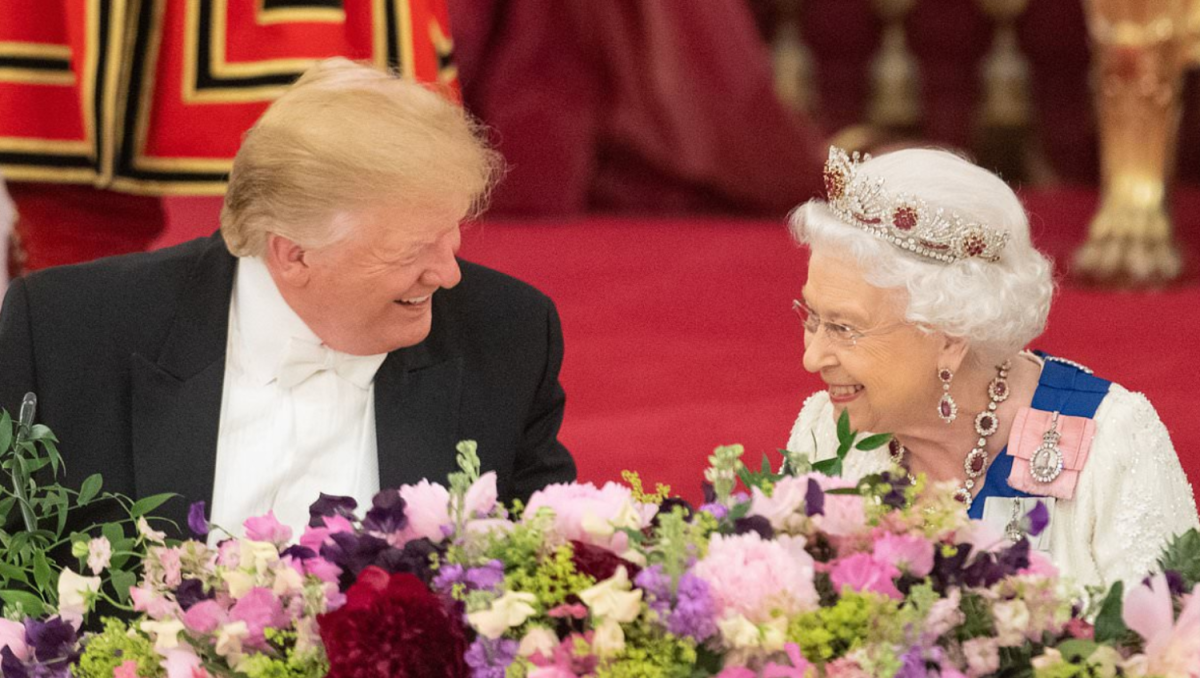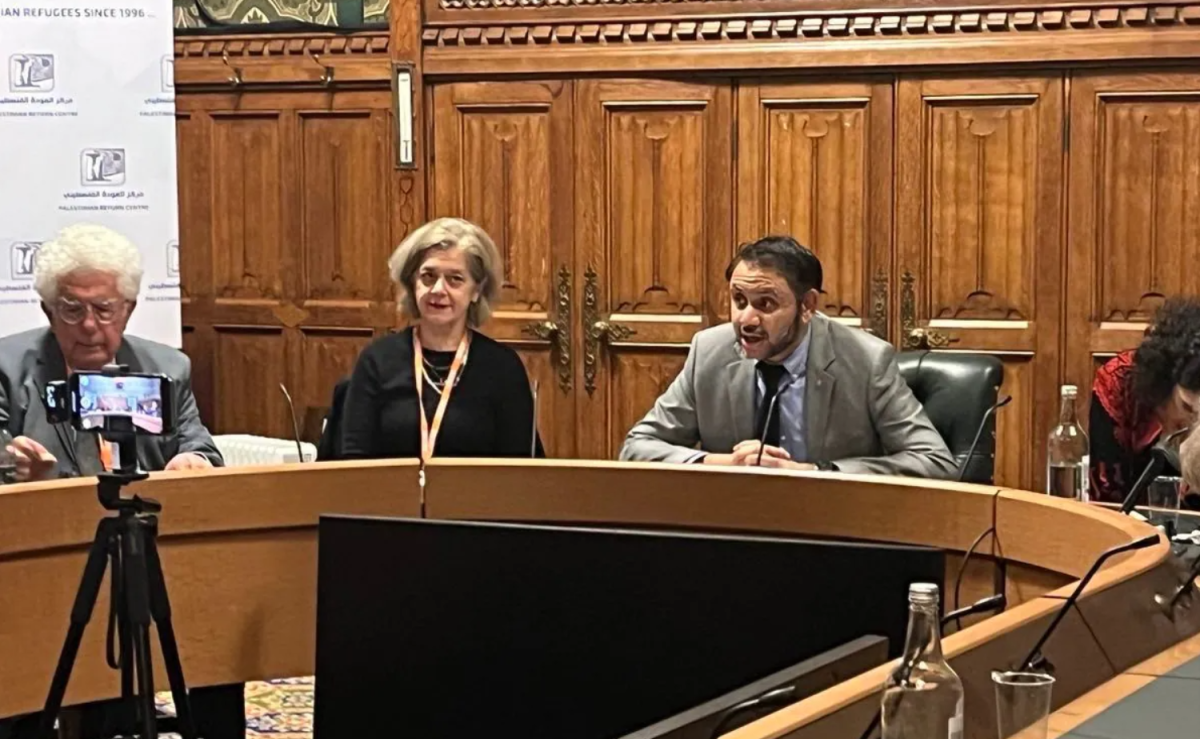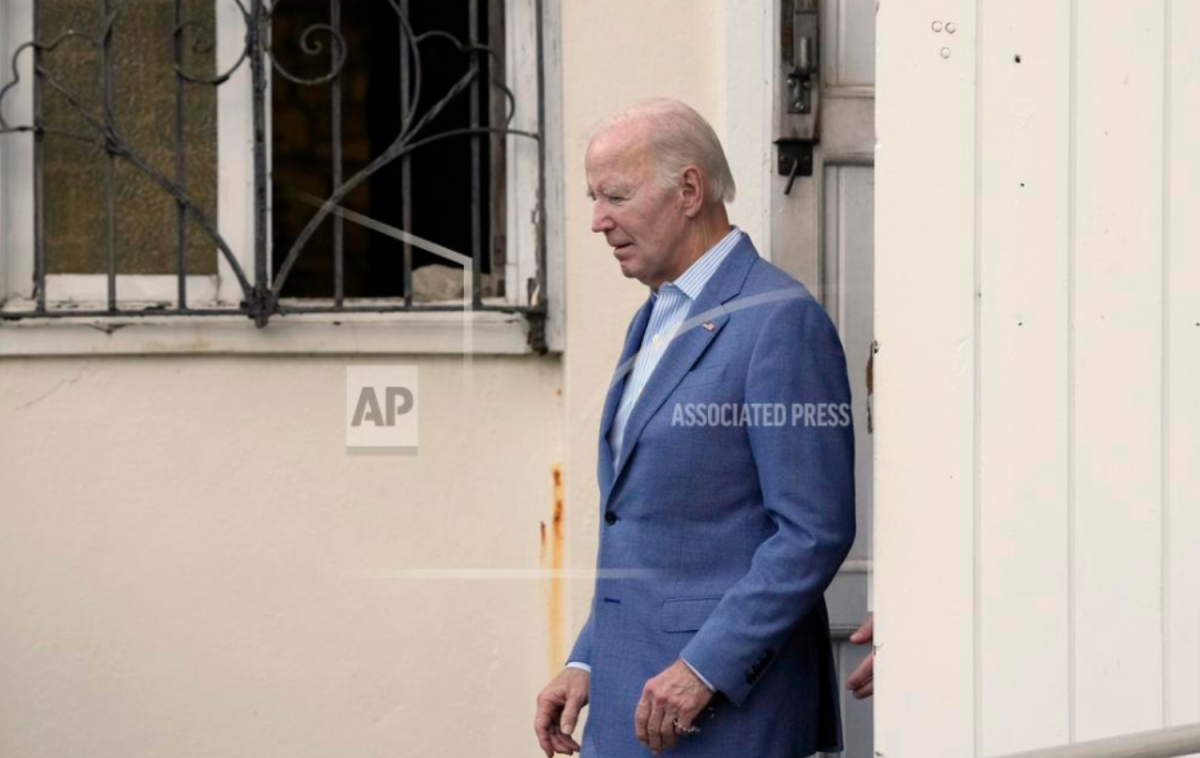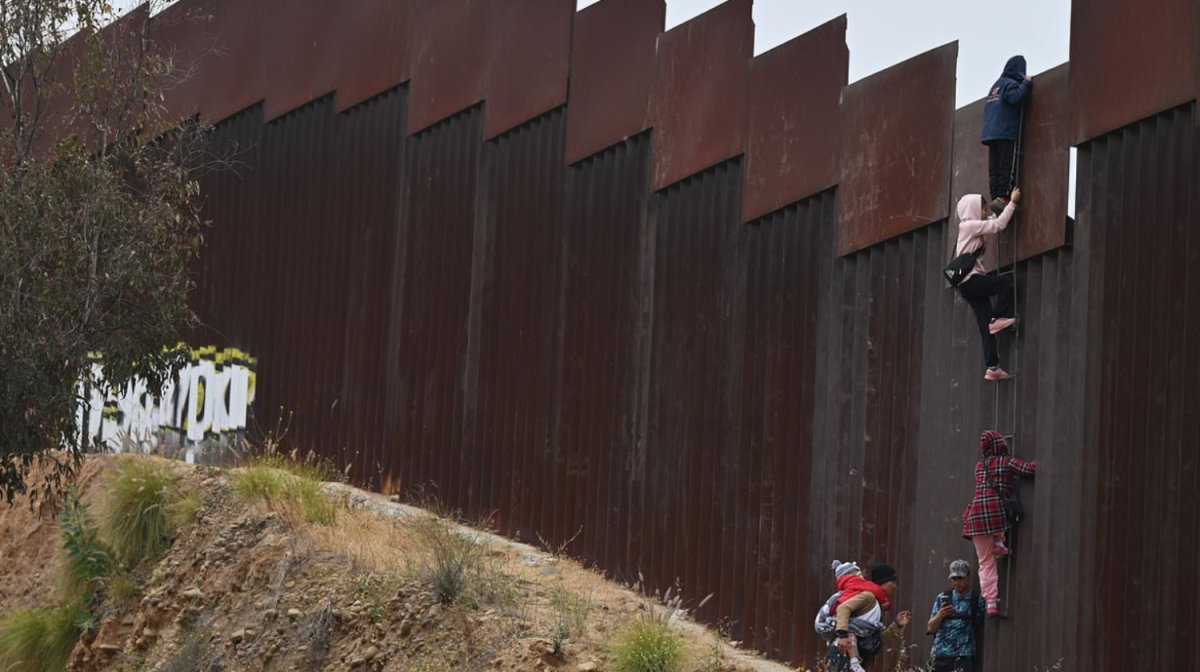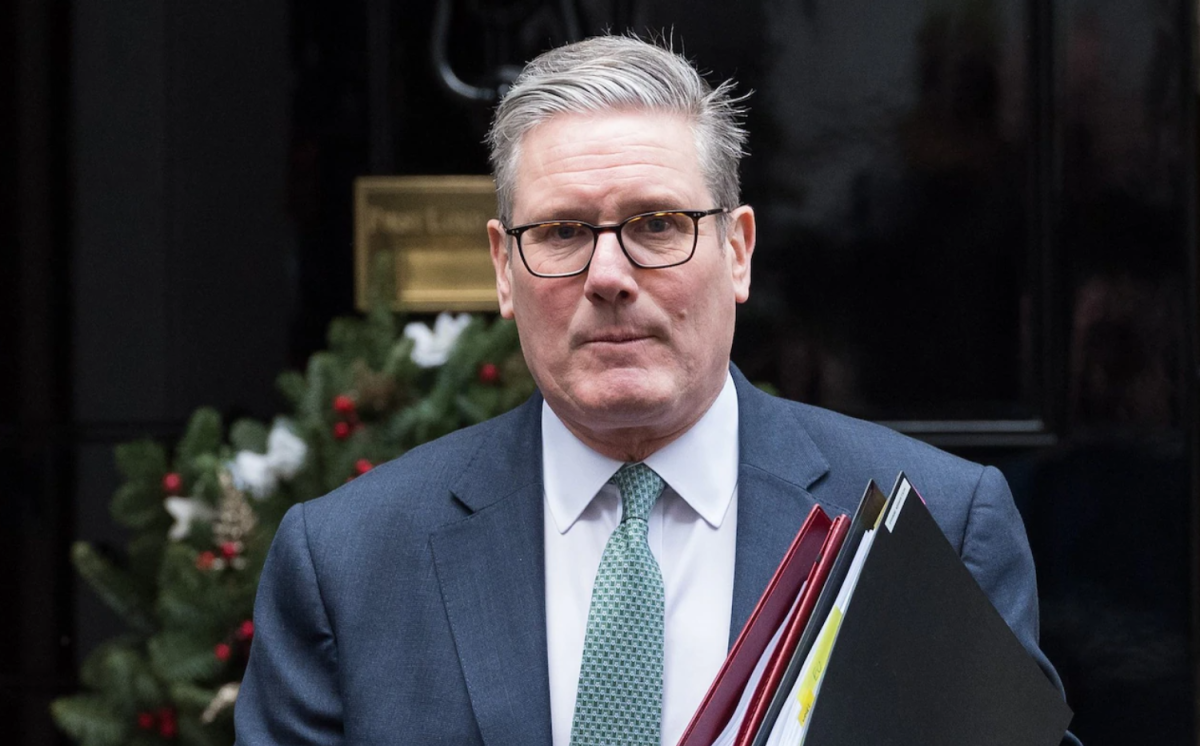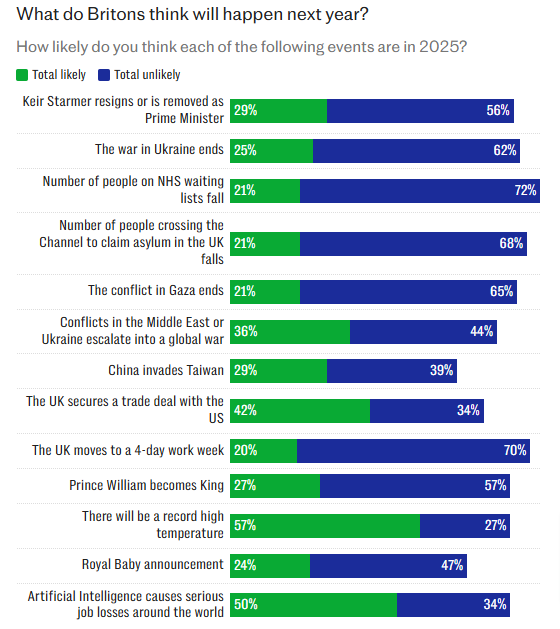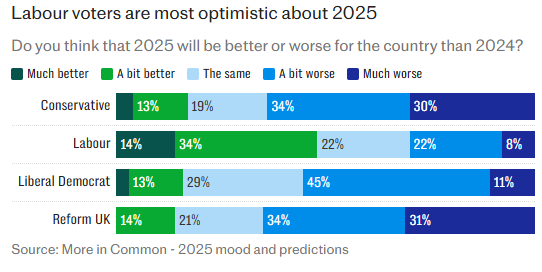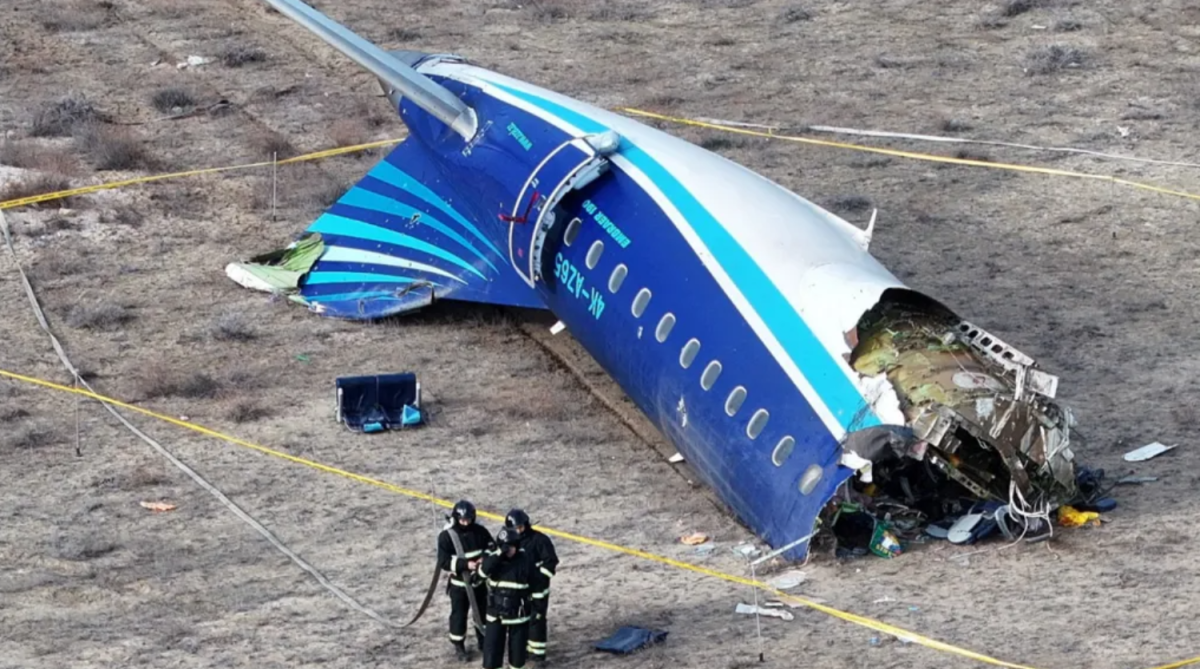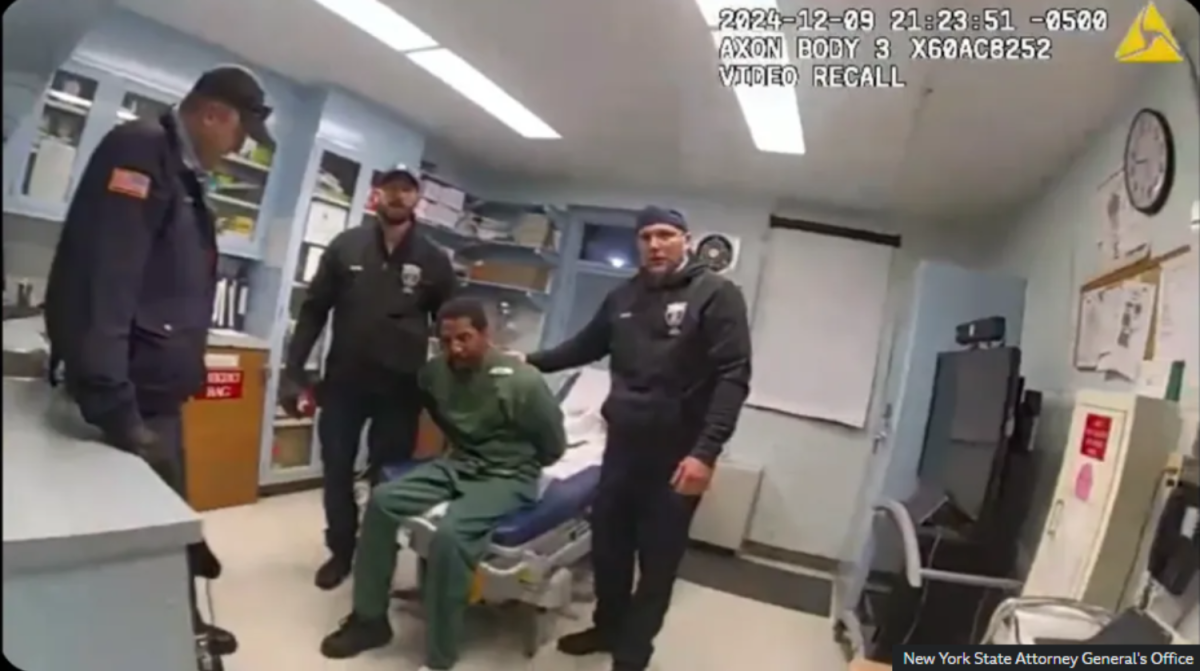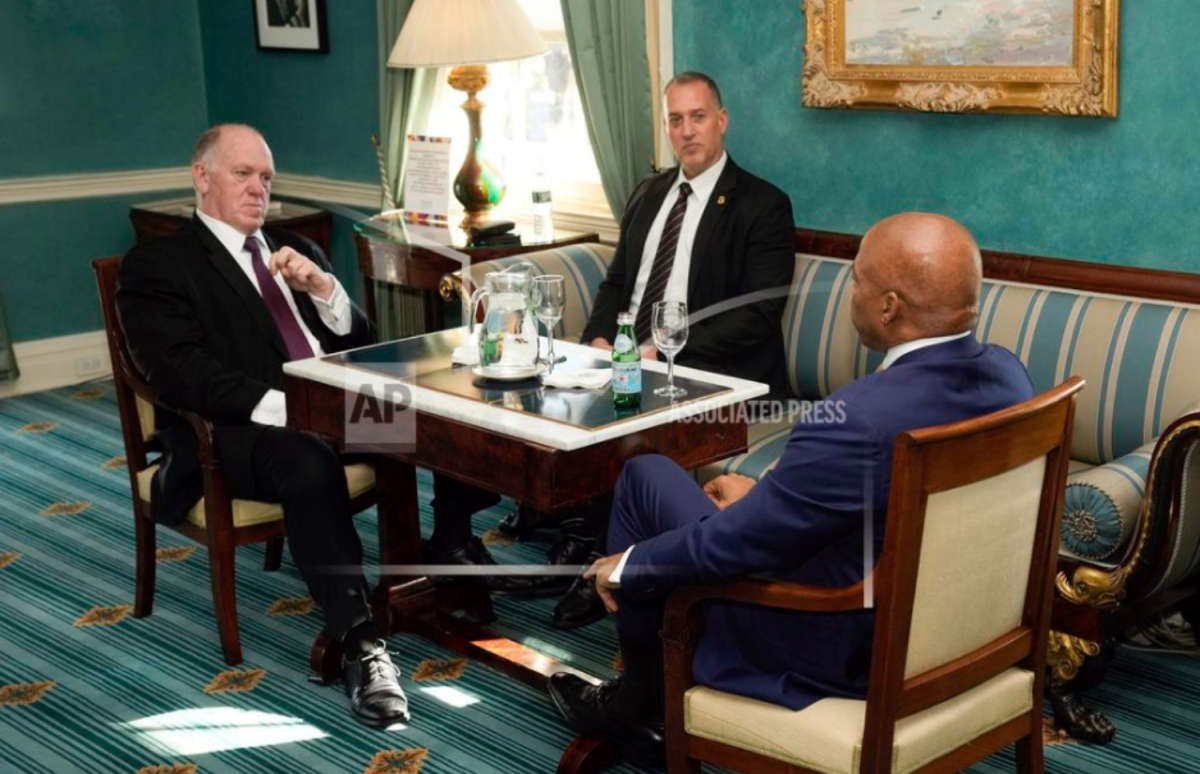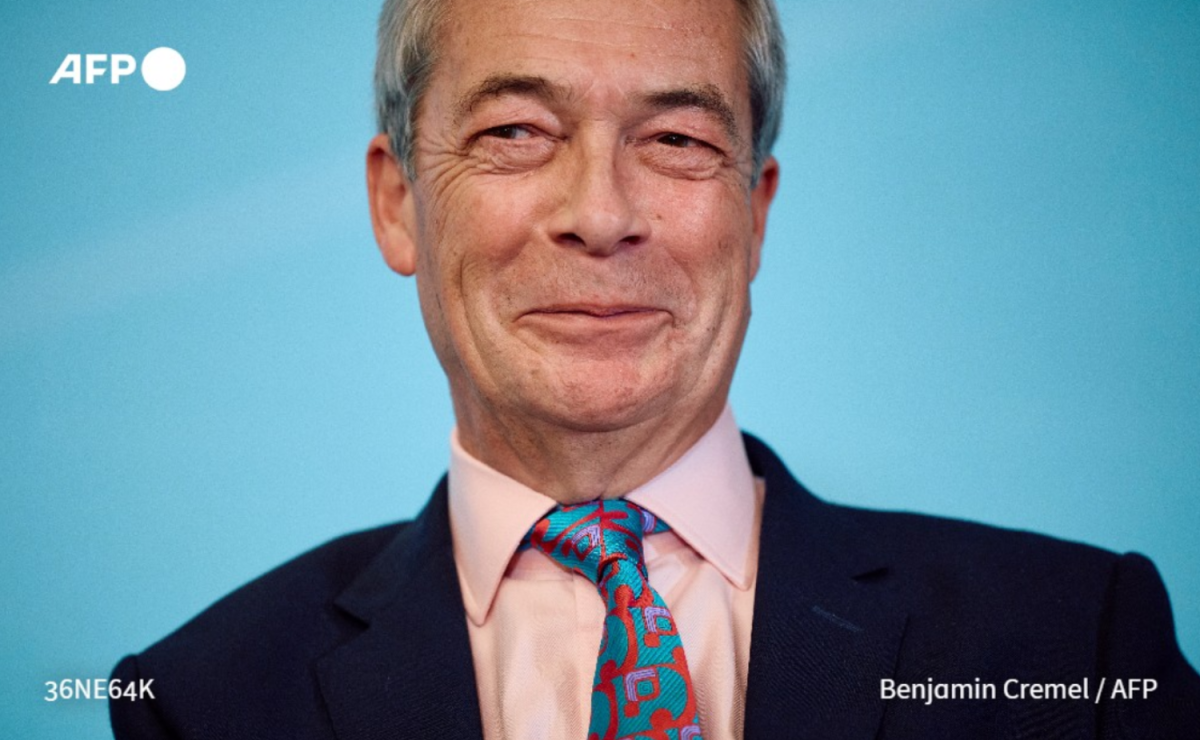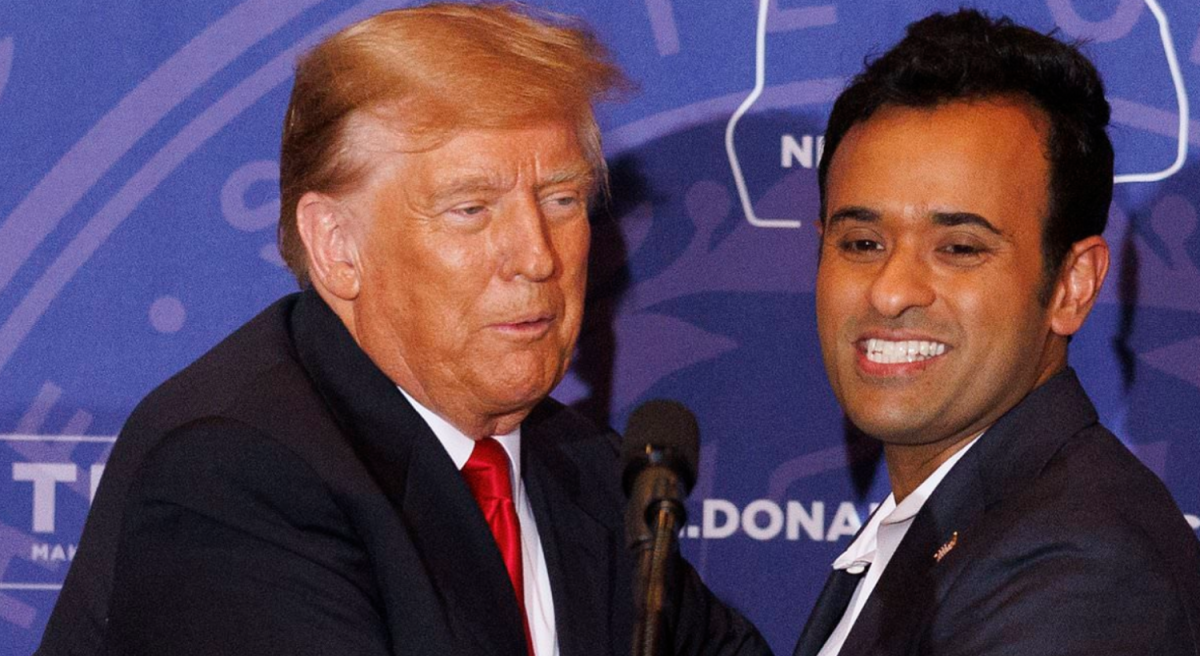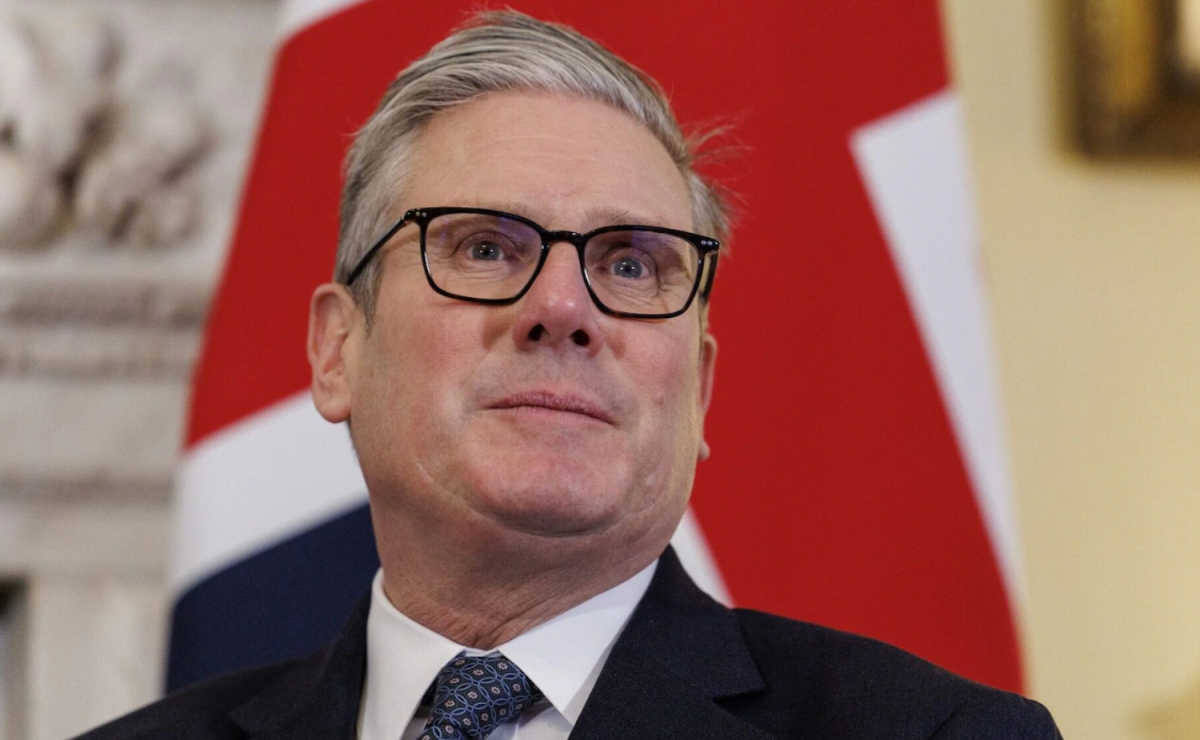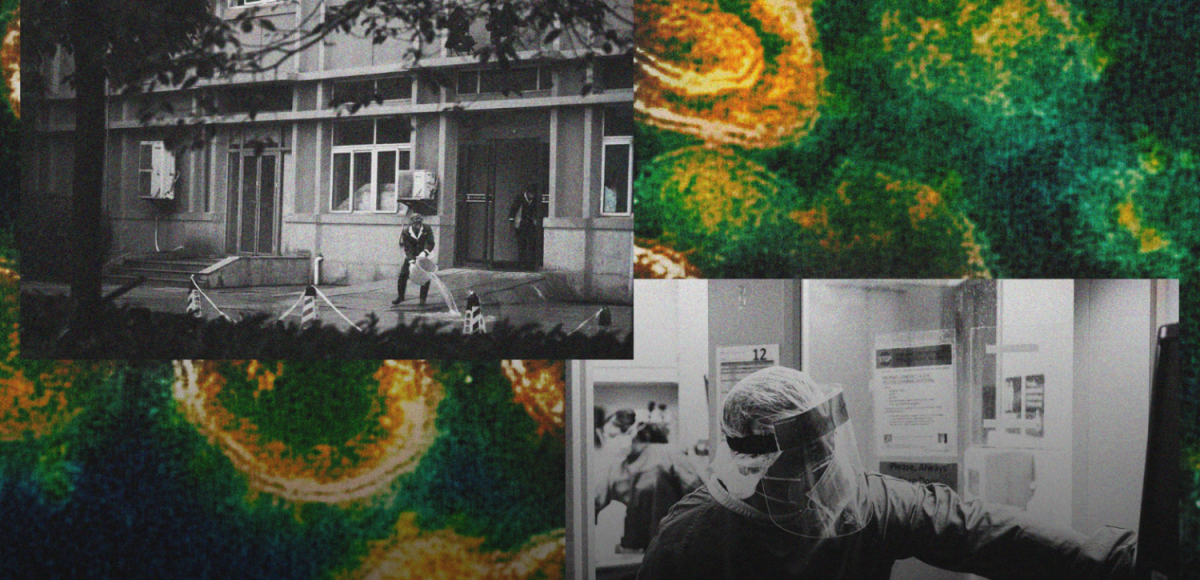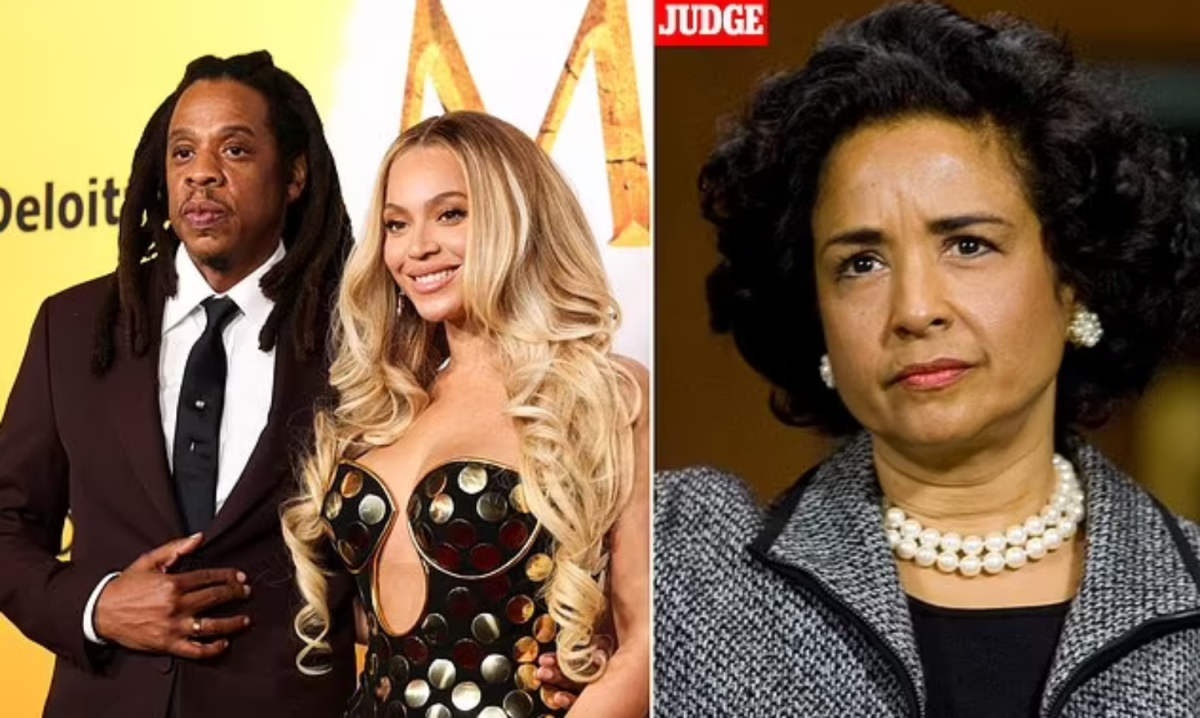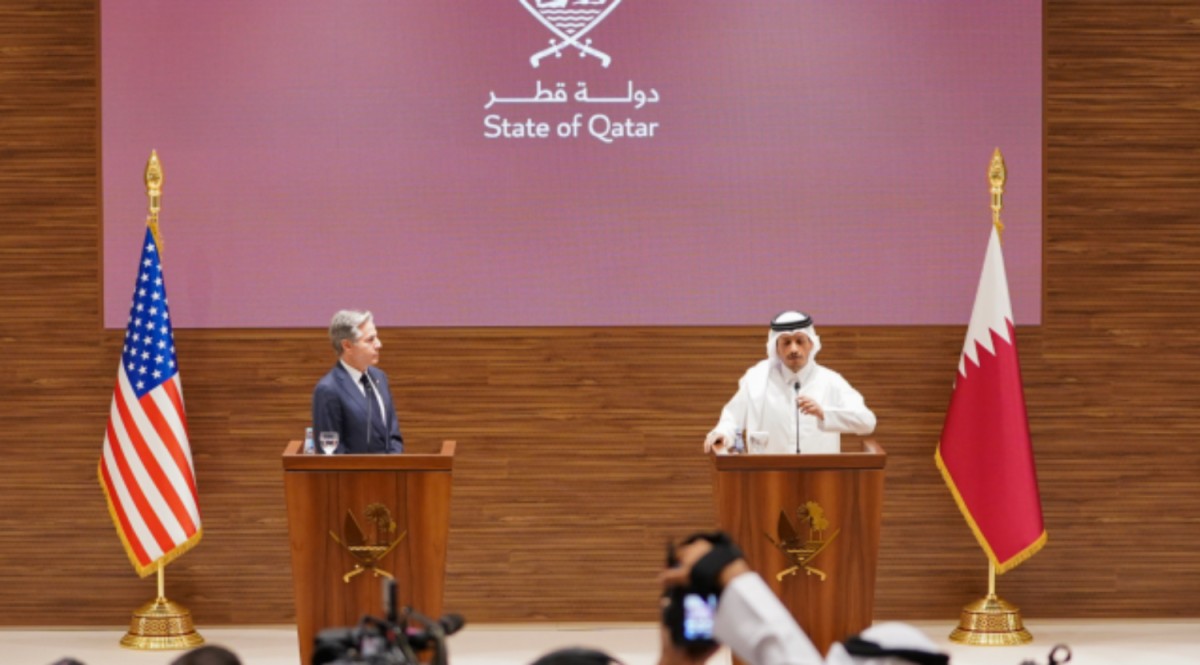-
Posts
10,807 -
Joined
-
Last visited
Content Type
Events
Forums
Downloads
Quizzes
Gallery
Blogs
Everything posted by Social Media
-
Donald Trump is poised to become the first elected politician in modern history to be hosted twice for state visits by the British Royal Family. Reports indicate that plans are already in motion for the former president to return to the UK for a second state visit following his anticipated inauguration in January. A senior Whitehall source confirmed the enthusiasm for the upcoming event, telling *The Daily Telegraph*: "[Mr Trump] loves the Royal Family. Look at the fact he’s had his own photo album made of the last visit. Why wouldn’t we want a repeat?" While preliminary arrangements are underway, the visit itself may not occur until 2026, aligning with diplomatic schedules and other priorities. The British government sees the high regard in which Trump holds the Royal Family as a valuable diplomatic asset, particularly in fostering stronger ties between the UK and the United States. Trump's connection with the Royal Family was evident during his presidency, highlighted by a grand three-day state visit in 2019. The visit included a formal dinner with the late Queen and a commemoration of the 75th anniversary of D-Day in Portsmouth. At the end of that visit, the Queen expressed her hope for his return, telling Trump, "I hope you come to this country again soon." In response, Trump praised her, calling her a "great woman" as he departed the UK. More recently, Trump and Prince William shared a warm interaction at the historic re-opening of Notre-Dame Cathedral in Paris earlier this month. The event marked Trump’s first meeting with a Royal Family member since his landslide election victory. Their 40-minute discussion reportedly covered global issues and emphasized the enduring importance of the US-UK relationship. Trump reflected on his admiration for the late Queen, while also lauding Prince William with the words, "Good man, this one." He added that William was "doing a fantastic job" and expressed his appreciation for the event, calling it "a beautiful ceremony." The bond between Trump and the Royal Family continues to be a focal point of diplomatic engagement. As the possibility of another state visit draws closer, it is clear that this unique relationship remains a cornerstone of fostering goodwill between the two nations. Based on a report by Daily Mail 2024-12-30
-
The Palestinian Return Centre (PRC), a pro-Palestinian advocacy group, was recently hosted in the UK Parliament despite allegations connecting its director to Hamas. The event, chaired by Shockat Adam, the independent MP for Leicester South, sparked concerns following revelations about the group's leadership. Mr. Adam, known for his strong pro-Gaza stance, shared on social media that it had been an “honour” to preside over the PRC’s discussion on "Defending Palestinian Rights: Humanitarian and Legal Perspectives." He described the PRC as an independent group advocating for the rights of Palestinian refugees and dismissed any suggestions that the meeting was connected to terrorist activities or promoted violence. The controversy centers on Majed al-Zeer, listed as the sole director of the PRC on Companies House records. The US Treasury’s Office of Foreign Assets Control recently identified Mr. Zeer as a “prominent international financial supporter of Hamas,” describing him as one of the group’s senior figures in Europe. According to the US designation, Mr. Zeer has played a pivotal role in Hamas’s European fundraising and has appeared publicly alongside other senior members of the organization to secure financial and logistical support. The PRC maintains that Majed al-Zeer has not held a position within the organization since 2019 and denies any affiliation with Hamas. Despite this assertion, Mr. Zeer’s involvement has raised questions, particularly given the timing of his US designation in October and prior accusations from German authorities. A report from Germany’s interior ministry, highlighted by *Der Spiegel*, alleged that Mr. Zeer served as Hamas’s key liaison across Europe, with significant links to the group. The PRC describes itself as a consultancy focusing on the rights of Palestinian refugees, particularly advocating for their "right to return" to Israel. However, its association with Majed al-Zeer and the ongoing allegations have fueled scrutiny of its operations and objectives. Shockat Adam, along with three other pro-Palestinian independent MPs, has formed an alliance with former Labour leader Jeremy Corbyn to amplify their collective voice in the Commons. Adam reiterated his support for the PRC, emphasizing its humanitarian focus and rejecting any notion of a connection to terrorism. "The PRC is a non-party, independent advocacy group that highlights the plight of the millions of Palestinian refugees across the Middle East and worldwide," he said. The event’s occurrence in Parliament underscores the complexities of balancing advocacy for Palestinian rights with concerns about potential links to proscribed organizations. The debate continues as authorities and organizations examine the broader implications of these allegations. Based on a report by Daily Telegraph 2024-12-30
-
President Joe Biden has reportedly expressed regret over his decision to withdraw from this year’s presidential race, asserting he could have defeated Donald Trump in last month’s election despite unfavorable poll predictions. According to sources close to the White House, Biden has privately reflected on what he considers missteps during his presidency, including his selection of Merrick Garland as attorney general. The regret over Garland stems from perceptions that the attorney general was slow to prosecute Trump for his alleged role in the January 6, 2021, Capitol insurrection. This delay, coupled with the Justice Department’s aggressive prosecution of Biden’s son Hunter, has reportedly fueled Biden's disappointment in his choice. Biden’s reflections come as his single-term presidency approaches its end, with only weeks remaining. A profile in *The Washington Post* revealed Biden’s belief that his withdrawal in July, following a poor debate performance against Trump, was a mistake. He reportedly thinks standing his ground would have yielded a different outcome. However, this perspective has been met with differing views. Supporters of Vice President Kamala Harris argue that Biden’s late withdrawal left her campaign with insufficient time to gain traction. Harris’s defenders maintain that the loss was not due to her candidacy but to the timing and circumstances surrounding Biden’s decision. The regrets over Merrick Garland are particularly striking given the context of his appointment. Announced the day after the January 6 attack on the Capitol, Garland was tasked with restoring the Justice Department’s independence after a period of perceived politicization under Trump. At the time, Biden praised Garland as someone who would bring “honor” and “integrity” to the department. Despite these intentions, Garland’s deliberate approach to investigating Trump has drawn criticism from many Democrats, who felt the pace was too slow to have meaningful political impact. The eventual appointment of Special Counsel Jack Smith added to the perception of delay. Smith’s investigations ultimately resulted in criminal charges against Trump, but his decision last month to request the cases be wound down following Trump’s election victory has left some Democrats frustrated. Biden’s regret over not pursuing a second term underscores the challenges and tensions within his administration as it grapples with the fallout of key decisions. These reflections, as reported, provide a glimpse into the president’s mindset during a pivotal moment in his political career and in the broader context of American governance. Based on a report by The Guardian 2024-12-30
-
President Joe Biden's administration has been compelled to cease auctioning off unused border wall materials following legal action initiated by Texas Attorney General Ken Paxton. This decision comes after a contentious battle over the fate of materials originally allocated for constructing the U.S.-Mexico border wall. The materials, left unused since border wall construction was halted in 2021, were initially slated for disposal under a plan authorized by Congress. However, the Biden administration's efforts to sell off these resources drew sharp criticism and legal intervention, particularly from figures aligned with President-elect Donald Trump. Attorney General Paxton announced on Friday that he had successfully halted further sales, ensuring that the remaining materials would be preserved for Trump's incoming administration to utilize. "We have successfully blocked the Biden Administration from disposing of any further border wall materials before President Trump takes office," Paxton stated. He further emphasized his commitment to holding the current administration accountable for what he described as actions undermining national border security. The Biden administration acknowledged the court order, effectively pausing all sales. According to Fox News, this move paves the way for President-elect Trump to decide the materials' fate after his inauguration in January. In a related legal filing, Trump accused the Biden administration of rushing to sell off the materials in defiance of Congressional requirements. Addressing the issue earlier this month at a press conference in Mar-a-Lago, Trump expressed his frustration over the situation, calling the sale of unused wall components "almost a criminal act." He added, "We're going to spend hundreds of millions of dollars more on building the same wall we already have." Trump has vowed to make significant changes to immigration policies and prioritize border security once he assumes office on January 20. The legal pressure from Texas aligns with its longstanding support for border wall construction. Paxton’s office also warned that any attempt by the current administration to defy the court order could result in contempt of court charges. Previously, a government-affiliated auction website, GovPlanet, had sold numerous surplus border wall components. Between April and August 2023, the site auctioned 81 steel structural tubes designed for the wall, reportedly generating $2 million in profit. Additionally, over 700 hollow beams, each 28 feet long, were sold in five separate lots for $212 each. This legal victory marks another significant step for Trump and his allies as they prepare to resume border wall construction in 2024. Paxton framed the decision as a critical win for border security, stating, "This follows our major victory forcing Biden to build the wall, and we will hold his Administration accountable for illegally subverting our Nation’s border security until their very last day in power." With the fate of the unused materials now secure, the stage is set for a renewed focus on immigration and border security as the presidential transition unfolds. Based on a report by Daily Mail 2024-12-30
-
A recent poll reveals that Britons are overwhelmingly pessimistic about the future, with half of respondents believing 2025 will be worse for the country than 2024. Conducted by pollsters More in Common, the survey of over 2,400 people paints a bleak picture, underscoring significant challenges for Labour leader Sir Keir Starmer as he seeks to uplift the national mood. According to the poll, only 23 percent of the public believe the next year will bring improvements, while 18 percent predict it will be “much worse,” and 27 percent expect little change. This pervasive pessimism extends beyond party lines, although Labour voters appear more optimistic, with 48 percent anticipating a better 2025 compared to 30 percent who believe otherwise. By contrast, supporters of Reform UK and the Conservative Party are far more negative, with 65 percent and 64 percent, respectively, predicting a downturn. Luke Tryl, executive director of More in Common, attributes the findings to a “pervasive sense of national gloom,” citing prolonged disillusionment with the current government and dissatisfaction with Labour’s perceived inability to fulfill its “Change agenda.” Tryl remarked, “Things have felt so bad for so long that people are finding it difficult to imagine them not being bad. We thought things would get better and they haven’t, so we are now less convinced that they will get better.” The public’s doubts extend to Sir Keir Starmer’s ability to address two pressing issues: reducing the number of migrants crossing the Channel and cutting NHS waiting lists. More than two-thirds of respondents believe his government will fail to deliver on these key promises by 2025, a significant hurdle for the Labour leader as he seeks to build confidence in his leadership. The poll also reflects a growing sense of global unease. A majority of Britons (57 percent) anticipate record-high global temperatures in 2025, and half expect artificial intelligence to lead to significant job losses worldwide. Additionally, 36 percent fear that ongoing conflicts in Ukraine and the Middle East could escalate into a global war, with more than six in ten doubting that either conflict will be resolved by 2025. Despite the widespread pessimism, there are glimmers of optimism. A majority (42 percent to 34 percent) believe the UK will secure a trade deal with the United States by 2025, and Sir Keir can find some reassurance in public confidence regarding his tenure. By a two-to-one majority (56 percent to 29 percent), Britons expect him to remain Prime Minister through the end of 2025. However, the overall sentiment remains deeply negative, underscoring the challenges faced by both the government and opposition in addressing the public’s concerns. With the poll reflecting a nation grappling with uncertainty and disillusionment, Starmer’s ability to deliver meaningful change will be critical in shaping the country’s outlook in the coming years. Based on a report by Daily Telegraph 2024-12-30
-
Russian President Vladimir Putin has issued an apology to Azerbaijani President Ilham Aliyev following the tragic downing of a commercial airliner in Russian airspace that claimed the lives of 38 passengers. However, Putin stopped short of admitting Russia's direct responsibility for the incident. The crash, which occurred on Christmas Day, unfolded as Russian air defense systems were actively repelling Ukrainian drone attacks. Reports suggest the aircraft, an Azerbaijan Airlines plane, came under fire from these defense systems while attempting to land in Grozny, Chechnya. The plane was forced to divert across the Caspian Sea and ultimately crash-landed in Kazakhstan, killing 38 of the 67 people onboard. In his first remarks on the incident, Putin described it as a "tragic incident" but provided limited details. The Kremlin released a statement confirming that Putin spoke with Aliyev on Saturday, extending his condolences. "President Vladimir Putin apologized for the tragic incident that occurred in Russian airspace and once again expressed his deep and sincere condolences to the families of the victims and wished a speedy recovery to the injured," the statement read. While Azerbaijan has refrained from officially blaming Russia, its transport minister stated that the plane experienced "external interference" and sustained damage inside and out as it attempted to land. US defense officials have also expressed their belief that Russia is responsible for the downing of the plane. During the phone call, Putin acknowledged that the aircraft had made repeated attempts to land at Grozny Airport on December 25. At the time, Grozny, Mozdok, and Vladikavkaz were under attack from Ukrainian drones, with Russian air defense systems engaged in repelling these strikes. The Kremlin noted that a criminal investigation had been launched by Russian authorities. Azerbaijan has also announced its intention to conduct an independent inquiry into the incident. As investigations proceed, the crash has cast a shadow over regional relations, with both nations grappling with the aftermath of a tragedy that claimed so many lives. Based on a report by BBC 2024-12-28
-
@bradiston you have now had a number of posts removed for trolling, baiting and off topic deflection, any more and there will be no further public notices on it but there will be an official warning issued to you and some time off posting to read the rules again. The report will be republished in January with updated data https://fews.net/gaza
-
Off topic post removed @Will B Good For your information: 28. You will not make changes to messages quoted from other members posts, except for purposes of shortening the quoted post. Do not shorten any post in a way that alters the context of the original post. Do not change the formatting of the post you are quoting.
-

Mike Waltz Warns Hostage-Takers: “Bullet in Your Damn Forehead”
Social Media replied to Social Media's topic in World News
Troll post removed @thaibeachlovers when making claims as serious as that . you need to provide credible links. -
Newly released body camera footage sheds light on a fatal incident involving New York corrections officers and an inmate, Robert Brooks, who died the morning after the violent encounter at Marcy Correctional Facility. The disturbing footage appears to show Brooks, a 43-year-old inmate, subjected to a brutal assault while restrained. The cause of death, determined by preliminary examinations, was listed as "asphyxia due to compression of the neck." However, details about why Brooks was initially brought to the medical facility remain unclear, as the videos lack audio. The incident has drawn widespread condemnation. Following an internal review, New York Governor Kathy Hochul announced the termination of 13 officers and a prison nurse involved in the assault. In a statement, she expressed being "outraged and horrified" by the events. "The state of New York has zero tolerance for individuals who break the law, and I am committed to holding everyone involved fully accountable," Hochul said. Attorney General James, whose office has launched an investigation, acknowledged the gravity of releasing such footage. "I do not take lightly the release of this video, especially in the middle of the holiday season," James said. She emphasized the importance of transparency and accountability, stating, "I release the videos because I have a responsibility and duty to provide the Brooks family, their loved ones, and all New Yorkers with transparency and accountability." Brooks had been serving a 12-year sentence for first-degree assault and had been transferred to Marcy Correctional Facility from a nearby facility on the same day as the assault. Elizabeth Mazur, the attorney representing Brooks' family, described the footage as a harrowing depiction of excessive violence. "The videos show the horrific and extreme nature of the deadly attack," Mazur said. She further remarked, "He deserved to live, and everyone else living in Marcy Correctional Facility deserves to know they do not have to live in fear of violence at the hands of prison staff." The union representing state prison workers called the footage "incomprehensible," underscoring the shock felt across communities. The incident has reignited discussions on prison reform and the accountability of correctional staff in New York and beyond. Based on a report by the BBC 2024-12-28
-
Tom Homan, President-elect Donald Trump’s incoming “border czar,” has announced intentions to bring back family detention centers as part of the administration's immigration policies. In an interview with *The Washington Post* published Thursday, Homan stated his commitment to reestablishing practices aimed at detaining families who enter the United States illegally. “You knew you were in the country illegally and chose to have a child. So you put your family in that position,” Homan said. He emphasized the necessity of building new facilities specifically designed to house families awaiting deportation, noting, “We’re going to need to construct family facilities. How many beds we’re going to need will depend on what the data says.” Under President Joe Biden’s administration, U.S. Immigration and Customs Enforcement (ICE) had been directed to phase out family detention centers in 2021. These facilities, along with other deportation measures, had been criticized by many as inhumane. Homan, however, sees the reintroduction of such centers as essential to enforcing stricter border policies. In a previous interview with CNN, Homan estimated that approximately 100,000 beds would be required to accommodate mass deportation efforts, an initiative he acknowledged would be costly. “This will be an expense — this will be an expensive operation,” Homan admitted, adding, “But in the long run, it should be a — it would be a huge tax savings on the American people.” Homan brings decades of experience to his role, having worked with ICE for over 30 years. As a senior official in 2012, he oversaw the deportation of 400,000 individuals, a record-breaking figure. While he will not directly lead ICE in his new capacity, he will collaborate closely with South Dakota Governor Kristi Noem, Trump’s nominee for secretary of the Department of Homeland Security, to implement the administration’s border security strategies. In addition to reintroducing family detention centers, Homan plans to launch a focused investigation into the welfare of 300,000 teens and children whose caretakers have reportedly ceased contact with federal caseworkers. “I think some of these children will be in forced labor, and some will be in the sex trade,” Homan remarked. “I think some will be perfectly fine. We just want to make sure.” The Trump transition team has not yet provided additional comments on these plans. However, Homan’s statements signal a return to hardline immigration policies, a hallmark of Trump’s first term, as the administration gears up to tackle border security challenges anew. Based on a report by the Hill 2024-12-28
-
For the first time in British political history, the anti-immigration Reform UK party has surpassed the membership count of the long-established Conservative Party, marking what its leader Nigel Farage called a "historic moment." The claim has sparked debate as the Conservatives challenge the figures. Immigration, a focal issue during the UK's July general election, played a pivotal role in the Conservatives' loss of power after 14 years in government. Reform UK's digital counter prominently displayed a membership tally exceeding 131,680 — the figure previously declared by the Conservatives during their leadership race earlier this year. Farage, a prominent Brexit advocate, celebrated the milestone, stating on X, “The youngest political party in British politics has just overtaken the oldest political party in the world. Reform UK are now the real opposition.” Zia Yusuf, chairman of Reform UK, echoed Farage's sentiments, suggesting that this development signaled the end of the Conservative Party's dominance over centre-right politics in Britain. “The long stranglehold on the centre-right of British politics by the Tories has finally been broken,” he declared. However, the Conservatives have questioned the validity of Reform UK's membership claims. Kemi Badenoch, the new leader of the Conservative Party, dismissed the figures as "fakery," alleging that the Reform UK counter was "coded to tick up automatically." In response, Farage challenged the Tories to a membership audit, offering to undergo the same scrutiny for Reform UK. Despite its growing membership, Reform UK's impact on the parliamentary stage remains modest, having secured only five seats in the 650-seat House of Commons during the July election. Nonetheless, it garnered around 14 percent of the total vote, significantly cutting into Conservative support in crucial constituencies. This division of the right-wing vote contributed to a landslide victory for the Labour Party, led by Prime Minister Keir Starmer. However, Starmer's early months in power have not been without challenges. An Ipsos poll revealed that 53 percent of Britons expressed disappointment with the Labour government’s achievements to date. The rise of Reform UK underscores shifting dynamics in British politics, which has long been dominated by Labour and the Conservatives. Historical precedents suggest that such disruptions can lead to lasting changes. The Liberal Party, once a powerhouse in British politics, was overshadowed by Labour after World War I and never regained its former prominence. Farage, a staunch supporter of US President-elect Donald Trump, recently revealed discussions with tech billionaire Elon Musk regarding potential donations to Reform UK, further indicating his party's ambitions to reshape the political landscape. Based on a report by the AFP 2024-12-28
-
The MAGA movement, long championing an "America First" ethos, is experiencing internal fractures as a heated debate over the H-1B visa program exposes ideological divides within its ranks. The visa program, which allows U.S. companies to hire highly skilled foreign workers, has become a lightning rod for controversy, sparking fierce online battles and revealing deeper cultural tensions. At the center of the storm is Vivek Ramaswamy, a former GOP presidential candidate and a Trump appointee recently named co-chief of the Department of Government Efficiency (DOGE). Ramaswamy's vocal defense of the H-1B program has drawn sharp criticism from MAGA loyalists, Republican leaders, and conservative influencers alike. His controversial remarks on X highlighted what he sees as a cultural issue, arguing that America's emphasis on mediocrity over excellence hinders its ability to produce top talent. "The reason top tech companies often hire foreign-born & first-generation engineers over 'native' Americans isn't because of an innate American IQ deficit (a lazy & wrong explanation)," Ramaswamy wrote. "A key part of it comes down to the c-word: culture. Tough questions demand tough answers & if we're really serious about fixing the problem, we have to confront the TRUTH: Our American culture has venerated mediocrity over excellence for way too long." Ramaswamy’s critique extended to cultural priorities, citing '90s sitcoms as emblematic of a broader societal shift. "A culture that celebrates the prom queen over the math olympiad champ, or the jock over the valedictorian... will not produce the best engineers," he added. "If you grow up aspiring to normalcy, normalcy is what you will achieve." While his remarks resonated with some, they ignited a backlash among MAGA supporters. Former South Carolina Governor Nikki Haley dismissed Ramaswamy's assessment, stating, "There is nothing wrong with American workers or American culture. All you have to do is look at the border and see how many want what we have. We should be investing and prioritizing in Americans, not foreign workers." Right-wing commentator Mike Cernovich criticized Ramaswamy’s views as dismissive of America's legacy of innovation, pointing to historical achievements like the moon landing. "Underlying your post is that we were all living in squalor until being rescued by H-1Bs. Then why did everyone want to come here?" MAGA influencers like Jack Posobiec and Laura Loomer also voiced their opposition. Posobiec questioned the prioritization of foreign talent over developing domestic expertise, while Loomer linked the H-1B program to fears of cultural erosion, invoking the "Great Replacement" conspiracy theory. Adding to the debate, Elon Musk and White House AI czar David Sacks defended limited reforms to the immigration system. Sacks highlighted inequities in green card allocation, where applicants from India face an 11-year wait while others face no delays. Musk called the argument "sensible," aligning himself with the tech industry’s call for skilled labor reforms. The clash reveals growing tensions within Trump’s coalition. While his first term saw significant cuts to the H-1B program, his current stance remains unclear. Critics warn that limiting skilled immigration could harm U.S. competitiveness in technology and healthcare, while MAGA supporters argue that stricter limits would force companies to invest in training American workers. As Trump prepares to take office for a second term, the debate over immigration and cultural values underscores broader anxieties about the direction of his administration and the evolving priorities of the MAGA movement. Based on a report by the Daily Mail 2024-12-28
-
Whitehall is preparing for a potential crisis in the private education sector as the imposition of VAT on school fees threatens to force many independent schools to close. The Independent Schools Council (ISC) has warned that the risk of closures is “very real,” prompting the government to draw up contingency plans to accommodate a potential surge in demand for state school places. From January 1, private school fees will be subject to a 20% VAT increase. This change, combined with other financial pressures, is expected to disproportionately impact smaller schools with lower fees, especially in areas where competition is fierce. Government officials, using data from Companies House and other sources, are closely monitoring these at-risk institutions. The immediate impact is expected to be somewhat smaller but still significant. By the end of this academic year, around 3,000 children are projected to transfer from private to state schools. Government sources have expressed confidence in the state sector’s ability to handle the influx but are actively working on contingency plans. “We have to plan for the worst,” one official told *The Times*. “Officials are monitoring schools most at risk of closure to help local authorities prepare where numbers may spike.” Another source emphasized the challenge of the upcoming transition: “The government routinely monitors pupil movement between the independent and state sectors, but this year the VAT increase introduces an added layer of complexity.” The Office for Budget Responsibility (OBR) predicts that most private schools will pass on two-thirds of the increased costs to parents through higher fees. Some schools may also reduce their offerings to mitigate the financial burden, while others will attempt to absorb the costs through profit cuts and efficiency measures. Private schools are already grappling with declining enrollment. The ISC reports that 8,000 children left private schools after Labour's election in July, with an additional 2,500 following in subsequent months. Wales has seen the largest drop, with pupil numbers down by 5.15%, followed by Yorkshire at 2.63% and the southwest at 2.43%. Robinson voiced concerns about the government’s preparedness, stating, “I think the government has seriously underestimated the level of movement as a result of their policies. There are a lot of financial shocks building up on independent schools.” She also highlighted the potential strain on local authorities, noting that while there may be overall space in the state sector, availability in the right locations is uncertain. Further compounding the financial strain on private schools is a rise in business rates and an increase in employers’ national insurance contributions this spring. The VAT charge alone is projected to raise £1.8 billion annually but leaves schools with limited flexibility in managing their budgets. Parents of children with special educational needs, who often rely on private schools due to inadequacies in state provision, are particularly concerned. “Families are incredibly committed to their children’s education and will make sacrifices to keep them in these schools for as long as possible,” one headteacher said, adding, “But no one is under any illusion that there won’t be further challenges ahead.” As the January deadline looms, the future of many private schools remains uncertain, with the financial and social consequences of these closures likely to resonate far beyond the independent education sector. Based on a report by The Times 2024-12-28 Related: Top Oxfordshire Prep School to Close Amid Controversial VAT Policy on Private Education
-
A routine Christmas Day traffic stop in Buenos Aires escalated into a diplomatic dispute when two Russian diplomats refused to comply with police requests, citing immunity under international law. The incident has drawn attention from both Argentine and Russian officials, sparking debate over the limits of diplomatic privileges and local legal obligations. The events unfolded in the affluent neighborhood of Recoleta, where a man driving a car with a diplomatic license plate was stopped by police at around 10:45 a.m. The driver refused to present identification, exit the vehicle, or take a breathalyzer test. The standoff lasted over an hour, attracting the attention of television reporters covering traffic stops, a routine Christmas feature in the area. The situation became more complex when bystanders attempted to intervene. A Russian-speaking passerby tried to mediate, while a self-proclaimed Russian-Spanish translator and lawyer arrived after seeing the incident on TV, calling the detention improper. Despite the commotion, members of the Federal Police’s diplomatic security department eventually escorted the man and his vehicle back to the Russian embassy. A similar episode occurred shortly afterward when another Russian diplomat driving a vehicle with diplomatic plates also refused to comply with police requests. Like the first, this individual was escorted to the embassy without incident. At 1:30 p.m., a representative identifying himself as a secretary from the Russian embassy addressed reporters outside the embassy. Citing the Vienna Convention on Diplomatic Relations, he claimed that diplomatic vehicles are exempt from stops, searches, or seizures, labeling the traffic stops a "serious violation of international law." The Vienna Convention indeed protects diplomats and their property, allowing them freedom of movement and immunity from arrest or detention unless they commit a serious crime. However, Article 41 of the convention states that diplomats must respect the laws and regulations of their host country, provided it does not hinder their official duties. The Russian embassy later submitted a formal complaint to Argentina's Foreign Ministry, urging measures to prevent future incidents and suggesting that such situations could be exploited by detractors of Russian-Argentine relations. Complicating matters, a 2022 memorandum from the Argentine Foreign Ministry explicitly reminded diplomats to comply with local traffic laws, warning that violations could result in fines and towing of vehicles. This communiqué had been issued after public complaints about irregularities involving vehicles with diplomatic plates. While some argued that the police actions were appropriate, others raised concerns about potential overreach. Deputy Marcela Pagano, of the ruling coalition La Libertad Avanza (LLA), filed a complaint accusing Buenos Aires City traffic officials of "abuse of authority" and failing to fulfill their public duties. Pagano pointed to Article 31 of the Vienna Convention, which protects diplomatic property from searches, and suggested the traffic stop’s proximity to the embassy might have been a deliberate provocation. However, former Argentine ambassador to China Diego Guelar dismissed these claims, asserting that the Vienna Convention was not violated. “Diplomats must comply with local legislation, identify themselves, and provide vehicle documentation,” he wrote on X (formerly Twitter), adding that the Russian embassy should simply pay any fines incurred. As the controversy continues, a spokesperson for the Argentine government characterized the incident as a minor administrative matter, unlikely to escalate further. “This was simply a discussion on diplomatic immunity and the circumstances of the detentions, nothing more,” said Presidential spokesman Manuel Adorni. Despite the tensions, the Argentine Foreign Ministry has yet to make an official statement, leaving the matter unresolved as legal and diplomatic discussions unfold. The situation underscores the delicate balance between respecting diplomatic immunity and enforcing local laws, a challenge that countries hosting foreign diplomats regularly navigate. Based on a report by the Buenos Aires Herald 2024-12-28
-
Russian President Vladimir Putin has voiced his readiness for potential talks with U.S. President-elect Donald Trump to address the ongoing war in Ukraine. Speaking at his end-of-year news conference in Moscow, Putin stated he has not communicated with Trump in years and that no meeting is currently planned. However, he emphasized his willingness to engage in discussions and make compromises to resolve the nearly three-year-long conflict. “I don’t know when we will meet because he has not said anything about it,” Putin remarked, adding, “I have not talked to him for more than four years. Of course, I’m ready to talk any time; I will be ready to meet with him if he wishes.” Trump, who has promised to lead peace talks between Russia and Ukraine, has claimed he could end the conflict within 24 hours of assuming office. During an address at the AmericaFest convention, he suggested that Putin is keen to begin negotiations. “President Putin said that he wants to meet with me as soon as possible,” Trump said. “So we have to wait for this, but we have to end that war. That war is horrible, horrible.” Putin insisted that he would not be approaching talks from a position of weakness. “I believe that Russia has become significantly stronger in the past two or three years,” he stated. “Why? Because we are becoming a truly sovereign country, and we barely depend on anybody. We are strengthening our defense capability. The combat readiness of the Russian Armed Forces is the highest in the world today. I assure you it is the highest.” Despite his confidence, Putin reiterated his openness to compromise, stating, “Politics is the art of compromise. We have always said that we are ready for both negotiations and compromises. The problem is that the opposing side, both literally and figuratively, rejected negotiations. We, on the contrary, have always been willing to talk, and talking always leads to finding a compromise.” Meanwhile, Ukrainian President Volodymyr Zelensky, who recently met with Trump in Paris, has indicated a willingness to cede territory to Russia if it would bring an end to the war. Trump, during a press conference in Palm Beach, Florida, acknowledged the complexity of the situation, admitting that resolving the Ukraine conflict would be more challenging than dealing with turmoil in the Middle East. “It’s a tough one. It’s a nasty one,” Trump said of the war. Despite these challenges, he noted having made “a little progress” toward brokering peace. As the world watches, the prospect of a meeting between Putin and Trump could signal a significant step toward resolving the devastating conflict in Ukraine. However, the success of any negotiations remains uncertain, hinging on the willingness of all parties to engage in meaningful compromise. Based on a report by the NYP 2024-12-28
- 102 replies
-
- 11
-

-

-

-
Labour MPs representing the Red Wall constituencies are urging party leader Sir Keir Starmer to adopt a tougher position on immigration to prevent losing ground to Reform, the party led by former Brexit Party leader Nigel Farage. The group, unofficially known as the “Red Wall Caucus,” consists of around 35 MPs from the North and Midlands, regions traditionally considered Labour strongholds but which saw significant Conservative gains in 2019. These MPs, led by Jo White, the newly elected representative for Bassetlaw, are advocating for Sir Keir to emphasize his commitment to addressing immigration concerns and to focus on other pressing issues affecting working-class communities, such as access to GPs, anti-social behavior, and the rising cost of living. The group believes that failing to address these concerns could lead to a shift in voter support toward Reform in these Brexit-supporting areas. Jonathan Hinder, Labour MP for Pendle and Clitheroe and a member of the Red Wall Caucus, highlighted the need for clear communication from the party regarding their policies on reducing migration levels. “The British people want our borders secure and net migration brought down after the Tories totally lost control,” Hinder stated. He emphasized the importance of ensuring that constituents hear directly from Labour about their plans and that the party’s messaging aligns with the priorities of voters in Red Wall areas. The MPs are actively engaging with ministers and pollsters to refine their policy approach and ensure the government understands the concerns of their communities. “It’s about having conversations with ministers to ensure they’re hearing what we see as important, so they assist with them in policy development,” the group explained. They described maintaining a “positive relationship with the Government” as a key strategy for achieving their objectives. This push comes as the UK grapples with record-high net migration levels, which peaked at nearly one million last year. Although recent figures show a 20% reduction, with net migration standing at 728,000 in the year to June 2024, the issue remains a focal point for public and political discourse. Sir Keir has pledged to reduce net migration but has refrained from setting a specific target, unlike his clear commitments on other policy areas. The Red Wall MPs argue that stronger and more vocal leadership on immigration, along with tangible action on issues like anti-social behavior and healthcare access, is essential for Labour to retain support in these constituencies. As Reform continues to draw attention from disillusioned voters, the Labour Party faces a critical challenge in balancing its policies to address the concerns of Red Wall communities while maintaining its broader appeal across the country. Based on a report by the Daily telegraph 2024-12-28
-
Initially dismissed as a conspiracy theory, the idea that Covid-19 may have originated from a laboratory in China has gradually gained traction. This theory clashed with the zoonotic hypothesis, which posits the virus jumped from animals to humans, and became a point of contention not only within scientific circles but also among intelligence agencies and political leaders. In 2021, amid growing frustration over China’s lack of transparency, President Biden tasked U.S. intelligence agencies with investigating the origins of the virus. The intelligence community was split. Most agencies leaned toward the zoonotic explanation with “low confidence,” while the FBI stood apart, asserting with “moderate confidence” that a lab leak was more likely. Yet, despite its distinct conclusion, the FBI was notably absent from the briefing given to Biden and his senior advisors in August 2021. Jason Bannan, a senior FBI scientist involved in the investigation, found this omission surprising. “Being the only agency that assessed a laboratory origin as more likely, we anticipated the FBI would be asked to attend,” Bannan said. However, a spokesperson for the Director of National Intelligence argued that divergent views were adequately represented during the briefing, even if individual agencies were not present. Behind the scenes, the disagreements ran deeper than many realized. At the National Center for Medical Intelligence, three scientists—John Hardham, Robert Cutlip, and Jean-Paul Chretien—concluded that Covid-19 was likely engineered in a lab through “gain of function” research. Their findings clashed with the position of their parent agency, the Defense Intelligence Agency, and were excluded from the final report to the president. In a twist, the scientists were later instructed to cease sharing their work with the FBI, which some within their ranks claimed was acting “off the reservation.” Meanwhile, their findings were leaked years later, fueling debates during congressional hearings. The broader investigation, dubbed the “90-day sprint,” was riddled with controversy. Intelligence experts clashed over the interpretation of data, including a comparison of Covid-19 to past zoonotic outbreaks like Ebola and MERS. FBI scientists argued these comparisons were misleading due to the unique contagiousness of coronaviruses, while others insisted the data underscored the plausibility of zoonotic transmission. Geography also fueled the debate. Some argued that Covid-19’s origin in Wuhan, far from the bat populations in Yunnan province where similar coronaviruses were previously detected, weakened the zoonotic theory. Critics countered that China’s lack of an effective surveillance network in rural areas left such gaps inconclusive. Despite these conflicts, proponents of both theories remained firm. Ralph Baric, a prominent coronavirus researcher, testified before Congress that the Wuhan Institute of Virology’s safety protocols were inadequate for the high-risk research being conducted there. Yet, others, including Dr. Anthony Fauci, maintained that the virus most likely had natural origins. By mid-2023, the U.S. Energy Department joined the FBI in supporting the lab-leak theory, though both conclusions were drawn with limited confidence. Newly declassified intelligence confirmed that the Wuhan lab had experimented with genetic engineering on coronaviruses, but no direct link to Covid-19 was established. Now retired, Bannan is among those advocating for a renewed examination of the evidence. “What ended up on the intelligence community’s cutting-room floor needs to be re-examined,” he stated, emphasizing the need for continued scrutiny despite diminished investigative momentum. The quest to uncover the truth about Covid-19’s origins remains unresolved. More than five years since the outbreak, the debate continues, highlighting not only scientific and geopolitical tensions but also the challenges of seeking answers in the absence of cooperation. Based on a report by the WSJ 2024-12-28
-
Jay-Z, whose real name is Shawn Carter, is facing sharp criticism from the judiciary in an ongoing legal battle over allegations of child rape. The case, brought by a woman identified as Jane Doe, accuses Carter and fellow rapper Sean "Diddy" Combs of drugging and assaulting her when she was 13 years old at an after-party following the 2000 MTV Video Music Awards in New York City. Both men have denied the allegations, with Carter calling them baseless. In a decisive ruling on Thursday, Judge Analisa Torres granted Jane Doe the right to remain anonymous during the next stage of legal proceedings. The decision came with a scathing critique of Carter's lawyer, Alex Spiro, whose aggressive legal tactics were described as "inappropriate, a waste of judicial resources, and a tactic unlikely to benefit his client." Judge Torres highlighted the attorney's repeated motions to dismiss the case and unmask Jane Doe, which she deemed "combative" and "filled with inflammatory language and ad hominem attacks." She further emphasized, "The Court will not fast-track the judicial process merely because counsel demands it." According to the lawsuit, the alleged assault took place after Jane Doe, then a teenager trying to enter the awards show at Radio City Music Hall, was invited to an after-party by a man claiming to be Combs' limousine driver. Upon arrival, she claims she was coerced into signing a nondisclosure agreement, served a drugged drink, and then assaulted by both Carter and Combs while a female celebrity allegedly watched. Carter’s legal team has vehemently denied the allegations, accusing the plaintiff and her attorney, Tony Buzbee, of fabricating the claims as part of an extortion attempt. In a public statement, Carter condemned Buzbee, saying, "I have no idea how you have come to be such a deplorable human, Mr. Buzbee, but I promise you I have seen your kind many times over. You claim to be a Marine? Marines are known for their valor; you have neither honor nor dignity." Adding complexity to the case, Buzbee himself is facing legal troubles. A separate lawsuit filed in Manhattan Supreme Court accuses him of sexually assaulting a woman, infecting her with a sexually transmitted disease, and attempting to silence her by offering free legal services. The plaintiff in that case alleges Buzbee became possessive to prevent her from exposing him. Despite the accusations against both Carter and Buzbee, Judge Torres has maintained focus on the accuser’s right to anonymity. She stated, “The weight of the factors tips in favor of allowing Plaintiff to remain anonymous, at least for this stage of the litigation.” Carter’s defense team, led by Spiro, has argued the lawsuit is rife with inconsistencies. Meanwhile, Buzbee’s legal actions extend beyond Carter, including multiple civil cases against Combs, who is currently jailed in New York awaiting trial on unrelated federal charges of coercion and abuse of women. As the case proceeds, the court’s strong stance on preserving the anonymity of the alleged victim marks a pivotal moment in what promises to be a contentious legal battle. Whether Carter and his defense team will alter their approach remains to be seen, but the judge’s rebuke underscores the importance of decorum and judicial fairness in even the most high-profile cases. Based on a report by the Daily Mail 2024-12-28
- 1 reply
-
- 1
-

-
China appears to be advancing rapidly in the race for aerial dominance with the development of a new stealth fighter jet. The groundbreaking aircraft, described by analysts as a potential "super weapon," has stunned military observers worldwide. Speculation is rife that the jet is designed to operate on the edge of space and target previously unreachable U.S. military assets, such as early warning aircraft and refueling tankers. "If procured in an operational form by the PLAAF, it would be able to fly over long regional distances and loiter for extended periods on station far from home without tanker support," noted *The War Zone*. It further emphasized that the fighter could carry out missions closer to threats than any other manned aircraft currently in China’s arsenal. Key design features of the aircraft highlight its stealth and high-performance capabilities. Aviation experts have noted the plane’s engines are fed by a single dorsal inlet and two ventral inlets, with the dorsal inlet employing a stealth-enhancing diverterless supersonic design. This configuration is said to optimize the jet for high-speed and stealth operations. The large ventral fuselage section appears to house an internal weapons bay, while the landing gear—featuring two wheels per main leg—mirrors designs used in heavy fighter-bombers like Russia’s Sukhoi Su-34. Observers have also identified potential missile and bomb loading hatches under the fuselage, enhancing radar stealth. The engine nozzles, positioned above the fuselage, are strategically designed to minimize heat radiation and noise, further boosting survivability. The jet’s size has drawn particular attention, as it suggests a focus on endurance and internal capacity. Analysts speculate the aircraft’s massive internal volume could accommodate an extensive fuel load, advanced sensors, and a significant array of weaponry. Additionally, aerodynamic efficiencies likely contribute to its ability to perform high-speed dashes and sustained cruising flights. Intriguingly, some images of the aircraft have led to speculation that it may feature three engines—a highly unconventional design choice. This would address the higher weight of the aircraft and support aggressive performance goals, particularly for high-speed and high-altitude operations. Retired U.S. Air Force General Mark D. Kelly had previously acknowledged the possibility of China developing next-generation fighter jets. "They are not dummies. They know what they’re doing," he said, cautioning that the Chinese sixth-generation air combat program is likely to include "exponential" advancements in stealth technology over existing platforms. The development of this new fighter jet underscores China’s determination to challenge U.S. air superiority. If the aircraft achieves its speculated capabilities, it could mark a significant shift in the balance of power in aerial warfare, raising the stakes in the competition for control of the skies. Based on a report by the Daily Mail 2024-12-28
-
Troll posts removed @bradiston. Please read the OP, the report has been withdrawn and removed from the website. If you dispute that please provide a credible link with your claim. " In factual areas such as news forums and current affairs topics member content that is claimed or portrayed as a fact should be supported by a link to a relevant reputable source." Comment on moderation by the same poster also removed. Anymore of the same and an official warning will be issued.
-

Britain’s Sharia Courts and the Challenge of Religious Freedom
Social Media replied to Social Media's topic in World News
Repetitive troll post removed by one member. Another post removed from @brewsterbudgen for unsubstaniated claims, any more and it will be time for an official warning Topic: "Britain’s Sharia Courts and the Challenge of Religious Freedom" -
As the transition of power looms, the Trump administration is presented with a critical opportunity to reset the United States’ relationship with Qatar. The initial diplomatic signals from President-elect Trump’s team suggest a shift, with reports indicating a call for Qatar to reinstate Hamas leaders to Doha. This starkly contrasts with recent moves by the Biden administration, which pressured Qatar to distance itself from Hamas. The incoming administration’s priority appears to be restarting Gaza ceasefire talks, particularly to secure the release of hostages. While a hostage deal would be a significant achievement, it must not come at the cost of continuing the Biden administration’s approach to Qatar, which treated the emirate as a steadfast ally despite its troubling associations. Over the past two years, Qatar has enjoyed an elevated status under the Biden administration, including its designation as a Major Non-NATO Ally and inclusion in the U.S. Visa Waiver Program. These privileges, however, were granted despite Qatar’s long-standing ties to Hamas, instances of anti-Israel incitement, and allegations of corruption involving U.S. and European officials. Trump’s administration should demand that Qatar demonstrates genuine allyship. Central to this is the unequivocal severance of ties with Hamas. If a hostage deal remains unresolved by inauguration day, the administration must pressure Doha to shut down Hamas’s operations within its borders and extradite its leaders. The possibility of revoking Qatar’s Major Non-NATO Ally status could serve as an additional incentive for cooperation. Congress is already considering such measures, with both the House and Senate deliberating bills that could rescind this designation. The U.S. military presence at Al Udeid Air Base, a critical strategic asset, offers further leverage. The Trump administration should explore alternative locations for military operations, including potential expansions in Saudi Arabia, to diminish Qatar’s ability to use the base as a bargaining tool. The 2025 National Defense Authorization Act’s provision requiring an assessment of Al Udeid’s operational value, given Qatar’s ties to Hamas, underscores the need for this recalibration. Another critical step is addressing the role of Al Jazeera, Qatar’s state-controlled media outlet. The Trump administration should enforce the Justice Department’s 2020 directive for Al Jazeera Plus to register as a foreign agent. Failure to comply with this order should result in the suspension of the network’s Capitol Hill press credentials. Furthermore, sanctions against Al Jazeera could be considered, aligning with precedent set for other state-sponsored propaganda outlets like Iran’s Press TV and Russia’s RT. Qatar’s inconsistent record on countering terror financing also warrants scrutiny. Despite a 2017 agreement with Washington, the continued presence of Hamas financiers in Qatar raises questions about Doha’s commitment. Congress should mandate a comprehensive review by the U.S. Government Accountability Office to assess Qatar’s compliance with this agreement. Corruption is another area where Qatar must be held accountable. U.S. authorities should investigate Qatar’s role in high-profile corruption cases, including the scandal involving Senator Bob Menendez. Tools like the Anti-Bribery Act and the Global Magnitsky Act could be employed to target Qatari entities and individuals implicated in corruption. Finally, the Trump administration must address Qatar’s international positioning. As host of the 2025 U.N. anti-corruption summit, Qatar has portrayed itself as a global leader in combating corruption. The administration should challenge this narrative by ensuring accountability for Doha’s domestic and international actions. For Trump, the path forward is clear: Qatar must earn its privileges as a U.S. ally. A failure to reset the relationship would allow Qatar to continue benefiting from U.S. trust while undermining shared values and priorities. A firm, principled approach will not only recalibrate this partnership but also reaffirm the United States’ commitment to its global allies and objectives. Based on a report by The Hill 2024-12-27


